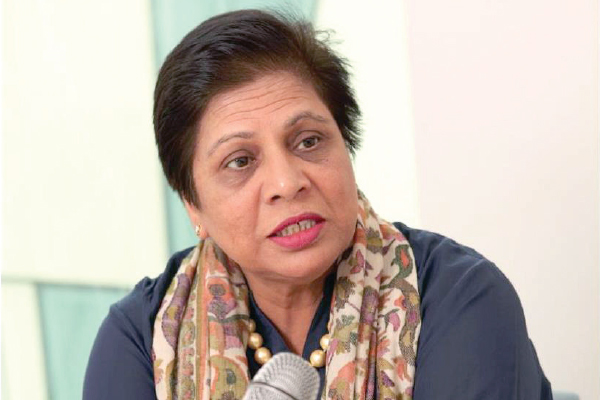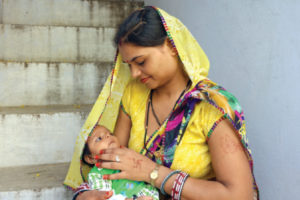

India Country Director, Jhpiego
In the state of Rajasthan, Jhpiego was initially brought in to support the governments efforts to expand access to postpartum family planning, which has led to Rajasthan being one of the first states in India to introduce Postpartum Intrauterine Contraceptive Device (PPICUD) services at the sub-district level facilities, says Dr Bulbul Sood, India Country Director, Jhpiego, in an interview with Elets News Network (ENN).
Please tell us about Jhpiego and the work it does with various governments to improve healthcare delivery.

 Jhpiego is a non-profit global health leader and a Johns Hopkins University affiliate that works for saving lives, improving health and transforming future of citizens. We partner with governments, health experts and local communities to nurture skills and develop systems that guarantee a healthier future for women and families.
Jhpiego is a non-profit global health leader and a Johns Hopkins University affiliate that works for saving lives, improving health and transforming future of citizens. We partner with governments, health experts and local communities to nurture skills and develop systems that guarantee a healthier future for women and families.
Jhpiego translates the best science and practices into moments of care that can mean the difference between life and death for women and families. The moment a woman gives birth; the moment a midwife helps a newborn to breath; the moment a nurse screens for cervical cancer with a simple vinegar swab; the moment a community health worker tests a man for HIV and reports he is HIV free.
Through our partnerships, we are revolutionising healthcare for the worlds most disadvantaged and vulnerable people.

How has been Jhpiegos journey in India so far?
Jhpiegos journey in India began in the 1980s, collaborating with the Ministry of Health and Family Welfare, Government of India, to strengthen reproductive health services. Beginning in 1992, Jhpiego was named a key partner in a five-year project, funded by the US Agency for International Development, to strengthen reproductive health services in the largest state (in terms of population) in India, Uttar Pradesh. Since 2006, Jhpiego has worked closely with the Ministry of Health and Family Welfare, Government of India, to improve access to high-quality reproductive health, Family Planning (FP) and Maternal and Newborn Health (MNH) services.
Jhpiego opened its India office in 2009 and has been closely collaborating with Ministry of Health and Family Welfare, Government of India, at the national and state level, providing technical assistance in the areas of strengthening FP services, human resources for health (HRH) and improving the quality of MNH care.
How is Jhpiego helping private healthcare providers to improve their service delivery?
In a country where a large proportion of healthcare is provided by the private sector, Jhpiegos work also includes working with and strengthening Indias private sector health institutions. Similarly, with more than 90% of Indias nursing students come from the private sector nursing institutions, Jhpiegos work has expanded to strengthening private sector pre-service education.
What are the other areas of public health in which Jhpiego India works?
Jhpiego India also works in the field of non-communicable diseases, especially gestational diabetes mellitus. Jhpiego hosts the technical support units for family planning and adolescent health for the Ministry of Health and Family Welfare.
What has been Jhpiegos experience of working in Rajasthan? How have you been aiding the government in improving public health delivery in the State?
In the state of Rajasthan, we have a long history of collaboration and success. Jhpiego was initially brought in to support the governments efforts to expand access to postpartum family planning, which has led to Rajasthan being one of the first states in India to introduce Postpartum Intrauterine Contraceptive Device (PPIUCD) services at the sub-district level facilities. Since then, we have helped build the capacity of more than 100 master trainers in PPIUCD insertion and more than 1,300 providers, resulting into counselling and serving around 40,000 women in Rajasthan.
In maternal and newborn health, weve implemented the immensely successful WHO Safe Childbirth Checklist programme at 101 facilities across seven districts in the state, resulting in an almost 11% reduction in perinatal mortality in these facilities. The insights gained from the programme guided the development of the national initiative to improve the quality of maternal and newborn healthcare called Dakshata, which is now being implemented in 20 districts in Rajasthan and in the coming year it will be extended to seven more.
Jhpiego is incredibly proud to have worked with the Indian Nursing Council and Government of India in their national initiative to strengthen the nursing profession in the country, including Rajasthan. With the support of the government, I am so proud of what we have been able to achieve in the State. Jhpiego has helped improve the quality of nursing education in 41 out of 48 public sector nursing schools in Rajasthan.
We built the capacity of faculty and service providers in clinical standardisation and strengthening of training infrastructure using skills lab, IT labs and libraries. We developed standardised teaching materials and e-learning content for interactive teaching and learning. We are very fortunate to have played a role in improving the quality of health services for women and families in Rajasthan, as quality is the absolute bedrock of all Jhpiego programmes.
What strategy you adopt to ensure success of Jhpiegos programmes?
In Rajasthan and in other States across the country, Jhpiego follows a systems approach to its programme design and implementation. A 360-degree comprehensive advocacy strategy speaks not only with policy makers, programme managers but also with professional associations, using data to advocate for change. Jhpiego works to develop the systems capacity to provide quality services by developing training sites, training state level master trainers from within the system and by creating an enabling environment at the facilities through on-site mentoring support. Material developed by Jhpiego” learning resource packages, job-aids, IEC materials etc. has been adopted by the government and is being utilised throughout the country.
Jhpiego also works to strengthen the systems capacity to record, report and analyse data for decision making. Quality was and continues to be the cornerstone of every programme that Jhpiego designs and implements. Jhpiego believes that successful, sustainable programmes can be achieved only through solid partnerships. It is grateful to the national and state governments for their leadership and to all its generous donors for their trust in realising the vision of preventing the needless deaths of women and families.
Be a part of Elets Collaborative Initiatives. Join Us for Upcoming Events and explore business opportunities. Like us on Facebook , connect with us on LinkedIn and follow us on Twitter , Instagram.












